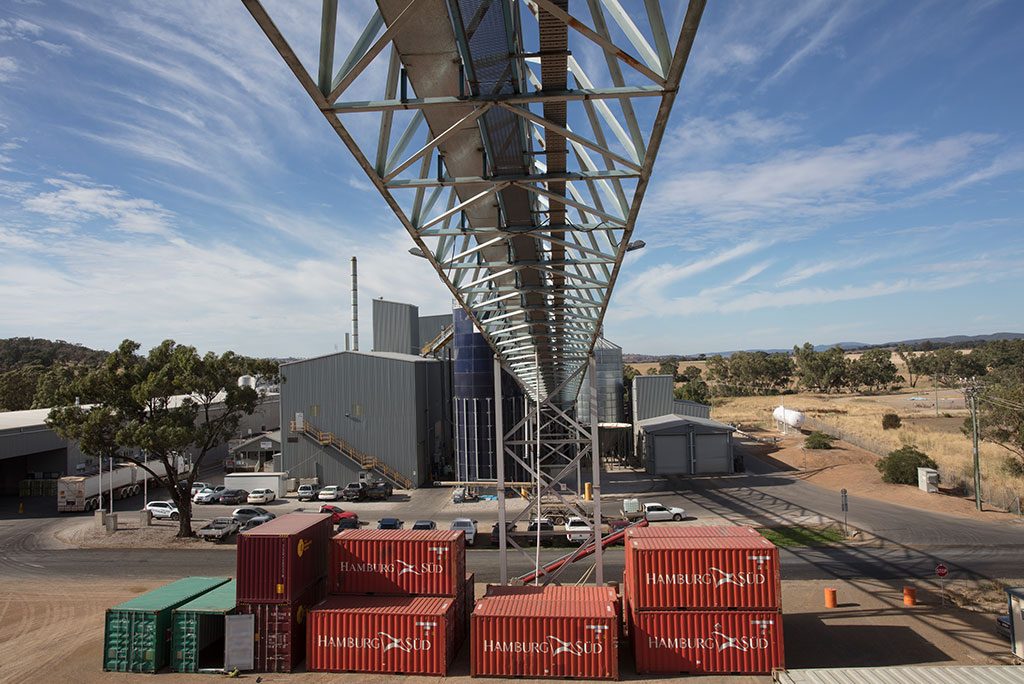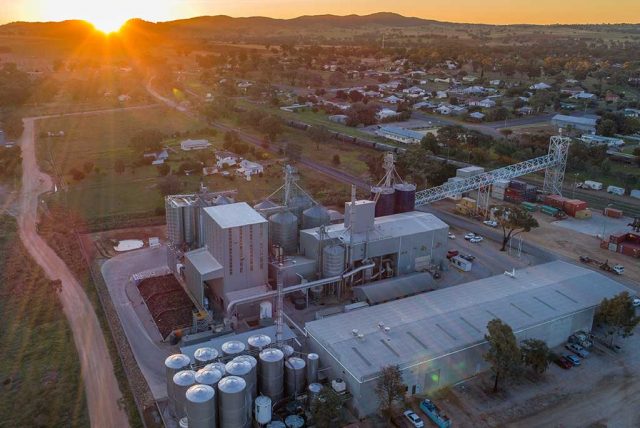Canola plant embraces bioenergy
Wood waste leftover from the local timber industry will soon power MSM Milling’s canola processing facility in Manildra, NSW.

The makers of premium canola oil and stock feed hope to annually save 2,500kL of LPG by converting their plant to run on to biomass, allowing them to take control of rising energy costs and reduce their emissions.
The project is one of the first demonstrations of a large-scale food manufacturing company using biomass for thermal energy to reduce their costs and environmental impact, receiving $2 million in funding from the Australian Renewable Energy Agency (ARENA).
Less than one per cent of Australia’s electricity needs are met by bioenergy, but the CSIRO have found that organic sources could provide as much as 20 per cent of Australia’s electricity supply in the short-term.
Queensland’s sugar industry currently accounts for around two-thirds of Australia’s bioenergy production, using biomass in the form of leftover cane mulch to power boilers and create electricity.
ARENA is funding projects to capture energy from a range of waste materials, including sewage, meat processing leftovers, landfill and organic litter.

How will it work?
MSM Milling have set out to use wood products leftover from the nearby Cyprus Pine industry to fuel their boilers to create heat, which will be used throughout the canola processing facility.
The timber industry has established markets for high-quality wood, but branches, offcuts, forest thinnings and sawdust go to waste.
To minimise costs the oilseed crushing and processing plant will run on woodchips and other raw residues, avoiding the added costs associated with pelletising waste timber.
The refit is the first example of a major food processor converting from gas to bioenergy, which MSM Millings director Bob Mac Smith says will lead the way for other Australian manufacturers to adopt renewable energy.
“Biomass isn’t new in itself, but biomass on an industrial scale and in a food processing facility is novel in Australia,” Mr Mac Smith said.
“There will be an 80,000 tonne reduction in CO2 emissions over a 20 year time span, and that’s a conservative estimate.”
Bob Mac Smith says MSM Milling face geographic challenges, currently trucking LPG to their Manildra plant which isn’t connected to the gas grid.
“These things have to be highly efficient to work, you need to have the fuel supply closeby, you need to have fuel handling automated… there’s a whole lot of technology that needs to be put together to make this work. A lot of R and D has gone into this because there aren’t turn-key, off the shelf solutions available.
Bob Mac Smith says the forestry waste and sawmill by products will be sourced from within 120kms of their Manildra canola processing facility.
“Being a regional area there are sources of fuel available. In this case it’s thinnings from forest management, there’s also waste or residue from sawmills,” he said.
MSM Milling has received ARENA support to demonstrate that that bioenergy works in large-scale food production applications and overcome ‘early adopter’ costs.
Demand building to save money with waste to energy
ARENA CEO Ivor Frischknecht said the $2 million grant will help to grow the underdeveloped biomass industry in Australia.
“Bioenergy currently makes up only around 0.9 per cent of Australia’s energy mix, however the use of wood residues to displace gas is becoming attractive as buyers and consumers are increasingly demanding better environmental performance across product supply chains.
“We hope MSM Milling’s innovation will lead to more industries turning to biomass in a move which could increase renewable energy generation in NSW and Australia and create alternative value streams for materials once considered surplus to requirements,” he said.
LIKE THIS STORY? SIGN UP TO OUR NEWSLETTER

ARENA